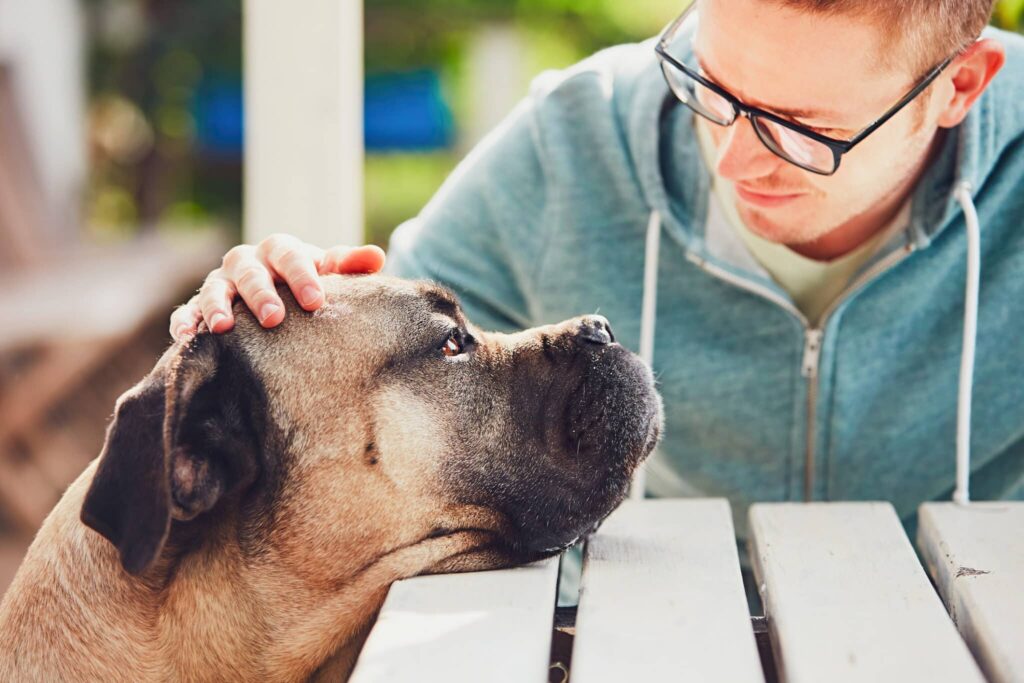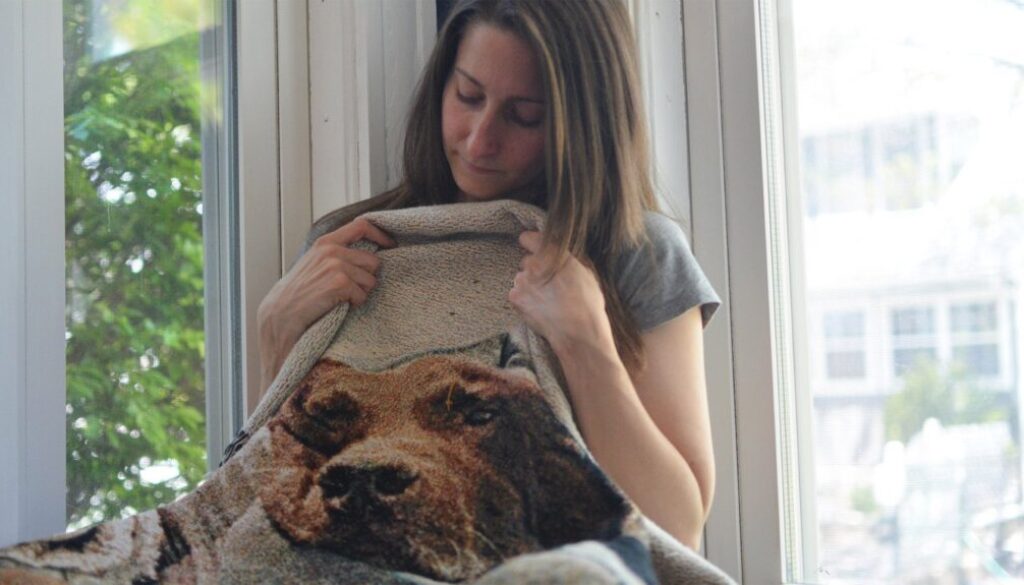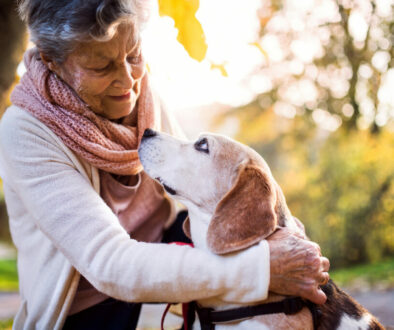When to Consider Pet Bereavement Counseling
Losing a cherished pet is an experience that transcends the boundaries between animals and humans. The profound emotional connection between pets and their owners often leads to an indescribable bond. However, when this bond is severed due to the loss of a pet, it can leave individuals grappling with intense emotions and grief. In such moments of sorrow, pet bereavement counseling emerges as a compassionate guide, offering support to navigate the complex journey of mourning.
Pet bereavement counseling is a specialized form of support that aims to help individuals cope with the emotional challenges and grief associated with losing a pet. It provides a safe space for pet owners to express their feelings, share memories, and receive guidance on navigating the unique journey of mourning a beloved animal companion.

The Emotional Bond Between Pets and Owners
The emotional bond forged between pets and their owners is a unique and powerful connection. Pets become more than companions; they become integral members of the family. This section explores the depth of this emotional bond, emphasizing how the loss of a pet can evoke a range of profound emotions and trigger a grieving process similar to that experienced with human loss.
Signs of Grief in Pet Owners
Emotional and Behavioral Changes
Grieving the loss of a pet often manifests in various emotional and behavioral changes. Individuals may experience heightened sadness, withdrawal from social activities, or changes in sleep patterns. This section delves into the common emotional responses that signify the grieving process.
Common Reactions to Pet Loss
Understanding the common reactions to pet loss is essential for both pet owners and those providing support. This part explores how individuals may express grief differently, such as through denial, anger, guilt, or even physical symptoms, shedding light on the multifaceted nature of the grieving process.
Understanding the Need for Pet Bereavement Counseling
Grieving the loss of a pet is a unique and personal experience, and acknowledging this grief is a crucial step toward healing. Pet owners often underestimate the profound impact a pet’s passing can have on their emotional well-being. This section explores the importance of recognizing and acknowledging grief as a valid and natural response to the loss of a beloved pet.
Cultural and Societal Perspectives on Pet Loss
The way individuals perceive and cope with pet loss is influenced by cultural and societal norms. This part delves into the diverse ways different cultures view the significance of pets and their role within families. Understanding these perspectives is essential for tailoring pet bereavement counseling to respect and accommodate various cultural beliefs surrounding pet loss.

The Role of Pet Bereavement Counselors
Training and Qualifications
Pet bereavement counselors play a pivotal role in providing empathetic support during the grieving process. This section outlines the necessary training and qualifications these professionals undergo, emphasizing the importance of specialized knowledge in both counseling and understanding the unique dynamics of pet loss.
How They Support Grieving Pet Owners
Pet bereavement counselors employ a range of therapeutic techniques to support grieving pet owners. From active listening to providing coping strategies, this part explores the compassionate ways in which counselors help individuals navigate the complex emotions associated with pet loss.
When to Seek Professional Help
While grieving is a natural process, prolonged and intense grief can have adverse effects on one’s mental health. This section discusses the signs that indicate prolonged grief, such as persistent sadness, difficulty moving forward, or the inability to cope with daily life.
Recognizing the Impact on Daily Life
Grief can permeate various aspects of daily life, affecting relationships, work, and overall well-being. This part sheds light on how the impact of pet loss extends beyond emotional distress and can manifest in practical challenges. Recognizing these effects is crucial for determining when professional help is necessary.
Coping Strategies for Pet Loss
Coping with the loss of a pet requires a combination of self-help techniques, a strong support system, and, in some cases, professional assistance. This section explores effective coping strategies to help individuals navigate the grieving process.
Self-Help Techniques
- Expressive Writing: Encouraging individuals to journal their thoughts and emotions can be therapeutic. Writing about memories, feelings, and the impact of the pet’s loss can aid in processing grief.
- Create a Memorial: Establishing a memorial, whether through pictures, a scrapbook, or a dedicated space in the home, can provide a tangible way to honor the pet’s memory.
- Mindfulness and Meditation: Incorporating mindfulness practices and meditation can help manage stress and promote emotional well-being during the grieving process.
Building a Support System
- Family and Friends: Surrounding oneself with understanding friends and family members can provide emotional support and a sense of connection during difficult times.
- Pet Support Groups: Joining support groups specifically designed for pet loss allows individuals to connect with others who share similar experiences, fostering a sense of community.
- Professional Counseling: In addition to informal support, seeking professional help through pet bereavement counseling offers structured guidance from trained experts.
Benefits of Pet Bereavement Counseling
Pet bereavement counseling offers a range of benefits that extend beyond what self-help strategies and informal support systems can provide.
Providing a Safe Space for Expression
Pet bereavement counselors create a safe and non-judgmental environment for individuals to express their grief openly. This section explores how this safe space encourages the sharing of emotions and memories, contributing to the healing process.
Facilitating the Grieving Process
Professional counselors guide individuals through the grieving process, offering tools and techniques to cope with intense emotions. This part emphasizes how counseling can facilitate acceptance and help individuals gradually move forward.
Online vs. In-Person Counseling
Deciding between online and in-person counseling is a personal choice that depends on individual preferences and circumstances.
Pros and Cons of Each Option
In-Person Counseling:
Pros: Face-to-face interaction, and personalized connection with the counselor.
Cons: Limited accessibility, potential travel inconvenience.
Online Counseling:
Pros: Convenience, flexibility, accessibility from any location.
Cons: Lack of face-to-face interaction, and potential technical issues.
Accessibility and Convenience Considerations
Exploring the accessibility and convenience aspects of online counseling, this section provides insights into how technology can bridge the gap for those who may face barriers to in-person sessions.
Pet Bereavement Support Groups
Pet bereavement support groups offer a unique and compassionate space for individuals to connect with others who share similar experiences of losing a beloved pet. This section explores the value of these groups, emphasizing the benefits and dynamics they bring to the grieving process.
Sharing the grief journey with individuals who have undergone similar losses can provide a profound sense of understanding and empathy. This part delves into how connecting with others fosters a supportive community and diminishes feelings of isolation.
Group Dynamics and Benefits
Examining the dynamics of pet bereavement support groups, this section highlights the benefits of group interaction, including shared coping strategies, the validation of emotions, and the formation of lasting connections.
Cost and Affordability of Pet Bereavement Counseling
While the emotional support gained from pet bereavement counseling is invaluable, considering the financial aspects is essential for individuals seeking assistance.
Budget-Friendly Options
Exploring budget-friendly options ensures that individuals with various financial capacities can access the support they need. This section provides insights into low-cost counseling services and community resources.
Insurance Coverage Considerations
Understanding insurance coverage for pet bereavement counseling is crucial. This part discusses considerations related to insurance plans and how they may contribute to covering counseling expenses.
Cultural Variations in Dealing with Pet Loss
The perception and coping mechanisms surrounding pet bereavement can vary significantly across different cultures. This section explores how cultural beliefs influence the grieving process and the importance of cultural sensitivity in counseling.
How Different Cultures Perceive and Cope with Pet Bereavement
Examining cultural variations in dealing with pet loss, this part provides insights into diverse practices, rituals, and beliefs surrounding the mourning of animal companions.
Cultural Sensitivity in Counseling
Recognizing the impact of cultural backgrounds on grief experiences, this section emphasizes the need for pet bereavement counselors to be culturally sensitive and adaptable in their approaches to effectively support individuals from various cultural backgrounds.
Tips for Pet Bereavement Counselors
Pet bereavement counselors play a vital role in supporting individuals through the grieving process. Effective counseling involves a combination of skills and approaches tailored to meet the unique needs of each client.
Empathy and Active Listening
Empathy: Demonstrating genuine understanding and compassion allows clients to feel heard and validated in their grief. This section emphasizes the importance of empathy as a cornerstone of effective counseling.
Active Listening: Attentive and empathetic listening helps counselors comprehend the nuances of a client’s grief. This part explores the role of active listening in building trust and fostering a therapeutic relationship.
Tailoring Counseling Approaches to Individual Needs
Personalization: Recognizing that each individual’s grief journey is unique, this section discusses the significance of tailoring counseling approaches to address the specific needs, beliefs, and coping mechanisms of the client.
Cultural Sensitivity: Acknowledging and respecting cultural differences is crucial. Counselors should adapt their approaches to align with the client’s cultural background, ensuring a more effective and respectful counseling experience.
Conclusion
In conclusion, the loss of a beloved pet is a deeply emotional experience that deserves acknowledgment and support. Pet bereavement counseling serves as a valuable resource for individuals navigating the complex terrain of grief. This section recaps key points discussed throughout the article.
In sharing experiences, acknowledging emotions, and embracing the available support systems, individuals can navigate the path of pet bereavement with resilience and hope. Remember, you are not alone in your grief, and seeking assistance can be a transformative step toward healing.
Also Read:



